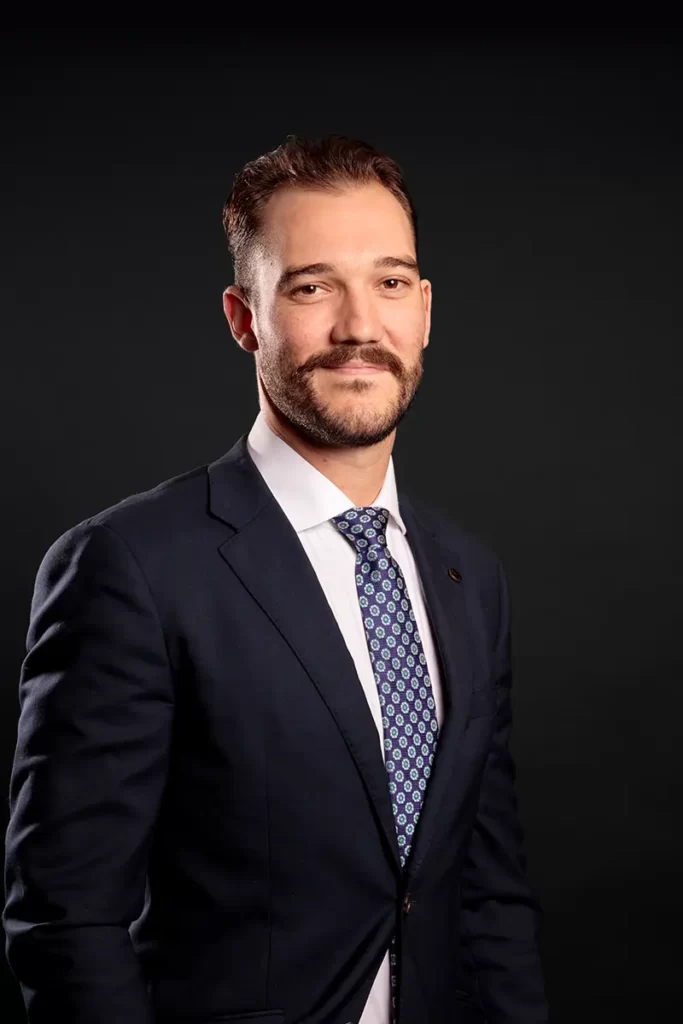Attwood Marshall Lawyers Partner Jeremy Roche and Compensation Law Associate Henry Garrett discuss the implications of road accident deaths and what compensation is available to the surviving family members who have lost their loved ones due to the negligence of other road users.
A recent tragedy
Mother of Brisbane Broncos star Payne Haas, Uiatu “Joan” Taufua (46) recently made news headlines after being charged with multiple offences relating to a motor vehicle accident that occurred on Bonogin Road in the Gold Coast Hinterland on 30 December 2022. The horrific accident caused three deaths, all from the same local family, who died at the scene. The charges levelled against Ms Taufua include three counts of manslaughter, mid-range drink driving, dangerous operation of a motor vehicle, evading police, and driving whilst unlicenced. Ms Taufua was the sole survivor, albeit seriously injured.
The horrific accident was regrettably one of many over the past 12 months in which Australians have senselessly lost their lives because of catastrophic motor vehicle accidents. These three road fatalities brought Queensland’s horrific road toll for 2022 to 299 fatalities which is the most people killed on Queensland roads in the past decade.
Senseless and avoidable motor vehicle accidents completely alter the lives of the loved ones who are left behind. Compensation claims are available for family members who lose their loved one in a motor vehicle accident, which can help provide financial stability and support during difficult times.
It is important to understand who is eligible to make a claim, what the claim’s process is, and time limitations that apply to ensure if you have experienced significant loss because of a loved one being killed in a motor vehicle accident, that you understand what restitution is available to support you and your family.
Understanding the compensation available when losing a loved one in a motor vehicle accident
When a loved one is killed in a motor vehicle accident, the family members and “dependants” of the deceased can bring a compensation claim against the Compulsory Third-Party, or CTP, insurer of the vehicle at-fault for the accident. CTP insurance covers any claims for personal injury or fatalities arising from a vehicle at fault and is part of the registration fee we pay on our vehicles each year.
Dependants of the deceased typically include the following:
- Spouse;
- De Facto Partner;
- Parents;
- Grandparents;
- Children (including step-children).
If you are unsure whether you qualify as a dependant for the purpose of making a compensation claim, please contact our friendly team to discuss your circumstances and find out what options may be available to you and other family members. In most cases, the surviving spouse or children of the deceased person will be the most common people affected by the loss of a loved one in a car accident, however, there are many different examples of financial dependency, and it is always wise to obtain advice on whether you may have a claim.
Common misconceptions
Australia does not have what is called a “wrongful death claim”. Unlike America, Australian law does not allow for multi-million-dollar lawsuits to compensate surviving family members for the loss of their loved one. Rather, a “dependency claim” is made for the dependant’s loss of financial support and services that the dependant would have received from the deceased if the fatal accident had not occurred.
To make a motor vehicle accident fatality “dependency claim”:
- You must be able to prove you were dependant on the deceased for financial support and/or services (e.g. care, support, housework, domestic/personal tasks); and
- The deceased cannot be the ‘at fault’ driver, meaning they cannot have caused the accident.
What compensation can be claimed?
When calculating damages, the court will consider the following:
- The length of your relationship to the deceased;
- The extent of your dependency on the deceased to provide you with financial support and services;
- The extent of the deceased’s contribution towards household or living expenses;
- The deceased’s loss of income; and
- Funeral expenses.
Time limits
A dependency claim is typically brought as a single claim by one dependant on behalf of all dependants. For example, the deceased’s spouse may bring a claim on behalf of themselves and the deceased’s children.
A compliant claim form must be served on the CTP insurer of the at-fault vehicle within nine months of the accident or within one month of consulting a solicitor. If these time limitations are not met, a reasonable excuse for delay must be provided to the court. The claim must be commenced in court (or otherwise time limit protected) within three years of the accident or the entitlement to claim will be extinguished.
In circumstances where the at-fault vehicle is unregistered, uninsured, or unidentified, a compliant claim must be served on the Nominal Defendant (which acts as the CTP insurer) within three months of the accident (or otherwise a reasonable excuse for delay must be provided). A compliant claim must be served on the Nominal Defendant within nine months of the accident or the entitlement to claim will be extinguished. The claim must thereafter be commenced in court (or otherwise time limit protected) within three years of the accident or the entitlement to claim will be extinguished.
Minors (under the age of 18) typically have three years from their 18th birthday to commence a claim in court, rather than three years from the date of accident in which to bring a claim. Nonetheless, it is always in a claimant’s best interest to obtain legal advice at the earliest opportunity available to ensure their rights are protected.
Example Case Study
The “bread winner” of the household is fatally injured in a car accident. The deceased was a schoolteacher earning $1,000 per week, with a wife and two young children living together on a 5-acre property in Mudgeeraba.
Loss of Financial Dependency
The dependants of the deceased would be entitled to claim for their loss of dependence on the deceased’s expected earnings until the deceased’s usual age of retirement. In this example, the dependants would be entitled to make a claim for expected $1000 per week brought in by the deceased person, plus superannuation. The sum would then be apportioned between the amount of income that the deceased would likely have spent on themselves (not claimable), and otherwise spent on the spouse and each child. Each dependant will be apportioned a percentage of the overall loss of financial dependency claim.
Typically, a spouse will be entitled to make a claim for financial dependency until the deceased’s expected age of retirement, whilst each dependant child would be entitled to claim financial dependency until their 18th birthday (unless they were likely to undertake study and require financial dependency to the age of 21).
Loss of Services and Assistance
The dependants would be entitled to claim for their loss of services that the deceased would have provided to the dependants had the fatal accident not occurred. This typically includes a claim for the housework, chores, driving, yard work, maintenance, and similar care and support that the deceased would have provided to the dependants. Again, the claim would be apportioned between each dependant according to each dependant’s likely period of dependency and rates of dependency.
Funeral Expenses
The family would be entitled to claim the cost of funeral expenses.
How it Works
The dependants and the CTP insurer of the at-fault vehicle can negotiate a suitable settlement of the dependency claim between themselves (i.e. out of court). Alternatively, the dependants can progress the matter to trial to be determined by a judge.
Once a suitable settlement or court award is determined, the total monetary value of the claim (i.e. loss of financial dependency and loss of services) is then apportioned between each dependant according to their individual levels of dependency, age, and particular circumstances.
For adult children, spouses and dependants, they are typically paid their portion of dependency claim funds within 8 weeks of the resolution of the claim.
For children and dependants under the age of 18 (or who suffer a legal incapacity), their portion of dependency claim funds are typically sent to the Public Trustee or a private trustee to be managed on their behalf until they reach the age of 18 and are no longer under a legal incapacity.
Generally, dependant children are paid their portion of funds by the trustee when they reach the age of 18. The CTP insurer is liable to pay additional funds for the trustee’s reasonable management and administration funds in managing those funds for the dependant’s benefit until they reach the age of 18.
“Nervous Shock” Claims
An additional compensation claim can be made on behalf of any immediate family members who suffered a recognised psychiatric injury (aka “nervous shock”) when witnessing or responding to the fatal accident. Loved ones often suffer psychiatric conditions in response to the trauma of a road accident fatality. In these circumstances, they are entitled to bring a claim for their losses (e.g. general damages, income loss, treatment costs, care and assistance requirements).
Importance of Obtaining Legal Advice
Fatal accidents are devastating and cause irreparable harm to family and loved ones. Although compensation is available to those impacted by these tragic events, it understandably does little to alleviate the trauma and personal loss associated with losing a loved one in an avoidable motor vehicle accident.
Dependency and nervous shock claims are often difficult and extremely complicated matters to resolve. It is vital to obtain expert legal advice as early as possible, not only to ensure your rights are protected but to alleviate the stress and upheaval associated with trying to deal with the tragedy and the immediate loss of financial support and services that the deceased would have otherwise provided.
Attwood Marshall Lawyers – helping injured motorists and their families for over 75 years
Our lawyers practice exclusively in compensation claims and are trained to deal with the complexities of fatal accident claims and people who are affected by senseless tragedy and fatal accidents.
If your loved ones have been involved in a fatal motor vehicle accident and you need advice and support on what to do next, please contact our friendly team by calling Compensation Law Department on 1800 621 071 any time.
Our compensation lawyers are available for appointments at any of our conveniently located offices at Coolangatta, Robina Town Centre, Kingscliff, Brisbane, Sydney, and Melbourne.
Support is available:
If you have experienced a traumatic event or lost a loved one, there is support available.
- Beyond Blue: Call a counsellor or chat to one online. 1300 224 636 or visit beyondblue.org.au
- Griefline: Griefline offers free phone support services nationwide, 7 days a week. Call 1300 845 745.
- Lifeline: For free counselling and support 24 hours a day, 7 days a week, call 13 11 14.


